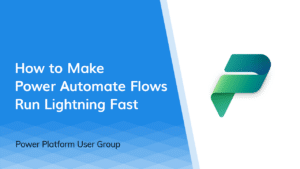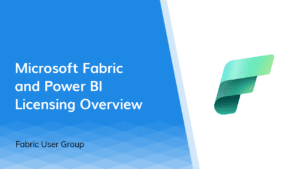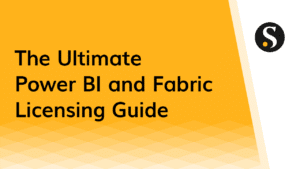Traditionally, large organizations depend on heavy-duty enterprise resource planning (EPR) systems and other legacy software to handle enterprise processes. But things have changed. Your enterprise team needs to become more nimble in today’s business environment by layering in customer app development to respond to fast-changing requirements.
The good news is that you already have many puzzle pieces in place.
If you’re already using Microsoft Dynamics as an ERP and other Microsoft products (i.e. SharePoint, Teams, and Azure) in your digital ecosystem, you’re perfectly positioned to take advantage of Microsoft Power Apps.
Ready to empower citizen developers at your enterprise to flex their skills muscles and drive process improvements? Keep reading…
Microsoft Power Apps Enterprise Success Stories
As a low-code development platform, Microsoft Power Apps enables employees with no coding experience to build custom applications that solve day-to-day operational challenges and improve cost-efficiency while easing the burden on technical resources.
Scan through these Power Apps success stories from other enterprises so you see the possibilities that exist for your own organization.
G&J Pepsi-Cola Bottlers Saved over $1.5 Million
G&J Pepsi-Cola Bottlers used the Microsoft Power Platform to equip 900 field personnel with an efficiency-enhancing mobile app, saving the company $500,000 in the first year.
The G&J Pepsi-Cola Bottlers team leveraged Power Apps and Power Automate to cut down on manual and repetitive tasks while ensuring that critical information is routed instantly and accurately. G&J Pepsi-Cola Bottlers has saved over $1.5 million by lowering software development costs, avoiding compliance penalties, and optimizing resource usage.
Toyota Motor North America Empowers Employees While Maintaining Quality Standards
Toyota Motor North America empowers employees to use Microsoft Power Apps, Power Automate, Power Virtual Agent, and Power BI to devise creative solutions for business challenges, such as ensuring safety compliance and managing travel during COVID-19. Its employees have published over 400 apps, solving long-term challenges and time-sensitive issues.
Schlumberger Improves Employee Experience with Health Tracking App
The leading energy service company, Schlumberger, has over 120 citizen developers spread over 32+ countries. Besides creating apps that save the company time and money, these citizen developers also build internal applications to help improve the employee experience.
For example, one employee started a campaign to encourage work-life balance by creating a health tracking app over one weekend.
Enterprise Power Apps Licensing: Per User vs. Per App vs. Pay-as-You-Go
If you’re already subscribed to the Microsoft 365 E3 or E5 plan, you can start using Power Apps right away. The functionalities are already included in the subscription, so you don’t have to do anything else to gain access. If you’re not yet on these plans, here are your options to gain access to Power Apps:
The first licensing option is to pay per user by subscribing to the Microsoft E3 or E5 plan starting at $32 per user per month. The subscription will give you access to Power Platform, which includes Power Apps, Power Automate, Power BI, and Power Virtual Agents—among all the other great features you get with an enterprise-level plan.
The second option is the Power Apps per app plan, ideal for organizations new to the Microsoft ecosystem. This plan allows full access to all the Power Apps capabilities to run one application in one environment.
You can find out if Power Apps is right for your organization before scaling up adoption. The first two apps cost $5 per user per month and the third application costs an additional $10 per user each month.
The per user plan is a more cost-efficient option in the long run for most enterprise businesses that plan to create well over three or four applications.
Microsoft recently introduced a new licensing option, which helps enterprises with a large user base that only use the apps intermittently save on cost.
The pay-as-you-go pricing plan is available for Azure subscribers and allows you to build and share apps without any license commitment. You don’t have to purchase anything upfront—simply link an environment to your Azure account and the Azure meters will track and bill the usage against your subscription.
Resources for Exploring Power Apps Capabilities
You can jump in and explore all the functionalities Power Apps offers with the Power Apps developer plan at no cost. It’s also a smart idea to explore what’s possible and read through some of the documentation to understand the inner working of the platform.
Explore the official Microsoft Documentation site:
- What is Power Apps? is a great primer to Power Apps
- Microsoft Learn – Introduction to Power Apps (Part of Microsoft Power Platform Fundamentals)
- Microsoft Learn – Create a canvas app in Power Apps
- Microsoft Learn – Get started with Power Apps canvas apps
- Microsoft Learn – Create a model-driven application in Power Apps
- Microsoft Power Apps Documentation also has a formal documentation library
Feeling ambitious? Get the PL-900 Power Platform Fundamentals Certification to support your digital transformation effort with Power Apps.
We like these fun and practical resources on YouTube:
- Guy in a Cube (Microsoft Stack)
- Shane Young (Focuses on Power Apps)
- Skypoint Cloud (Our channel with Power Apps, Power BI, and many other Power Platform video resources)
You can also join these local user groups, meetups, and forums to connect with other users:
Plus, check out these Power Apps resources right here at Skypoint:
- The 5 Do’s and 5 Don’ts of Getting Started with Power Apps
- Why You Should Convert Macros to Power Apps
- Low-Code No-Code Movement: What’s Real and What’s Hype?
- The Power Apps Licensing Guide for Growing Businesses
Have questions about the nitty-gritty of Power Apps licensing? Check out our Power Apps resources or get in touch to see how we can help.











